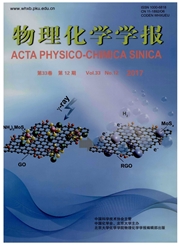

 中文摘要:
中文摘要:
以苯为探针分子,采用频率响应(FR)技术和智能重量分析仪(IGA)研究了原位晶化流化催化裂化(FCC)催化剂上的传质行为。结合N2吸附和扫描电镜(SEM)剖析所得织构性质数据,并与传统半合成FCC催化剂以及稀土改性Y分子筛传质性能进行对比,结果表明原位晶化FCC催化剂所具有的独特纳米化和高度分散的分子筛组分分布状态,显著改善了基质大孔/介孔结构与分子筛微孔孔道的贯通性,削弱了分子筛孔道与基质界面间的传质阻力,从而优化了成型催化剂颗粒的传质性能。本研究再次证实了频率响应技术可以检测和辨析多孔催化材料体系中发生的复杂吸附-扩散过程,是一种有效的多级孔催化材料传质性能的研究手段。
 英文摘要:
英文摘要:
Mass transfer behaviors of benzene in an in situ crystallization fluid catalytic cracking(FCC) catalyst were measured and discriminated by the frequency response(FR) method and an intelligent gravimetric analyzer(IGA). The texture properties of the FCC catalysts were analyzed by N2 adsorption and scanning electron microscope(SEM). By comparison with the mass transfer performance of a semi-synthetic FCC catalyst, as well as a zeolite Y, the results show that the in situ crystallization FCC catalyst has excellent and improved mass transfer behavior over the semi-synthetic FCC catalyst and that it reduces the mass transfer resistance between the interface of zeolite crystal and substrate, which can be attributed to the excellent porous connectivity of the former with the unique accumulation state of the highly dispersed nanosized Y zeolite crystals. It has been demonstrated that the FR technique can be used to measure and distinguish the complex mass transport processes in hierarchical porous catalytic materials.
 同期刊论文项目
同期刊论文项目
 同项目期刊论文
同项目期刊论文
 Adsorption, Co-adsorption, and Reactions of Sulfur Compounds, Aromatics, Olefins over Ce-Exchanged Y
Adsorption, Co-adsorption, and Reactions of Sulfur Compounds, Aromatics, Olefins over Ce-Exchanged Y Ensemble and ligand effects on the acetylene adsorption on ordered PdxAg1-x/Pd(100) surface alloys i
Ensemble and ligand effects on the acetylene adsorption on ordered PdxAg1-x/Pd(100) surface alloys i Adsorption behaviors of thiophene, benzene, and cyclohexene on FAU zeolites: Comparison of CeY obtai
Adsorption behaviors of thiophene, benzene, and cyclohexene on FAU zeolites: Comparison of CeY obtai 期刊信息
期刊信息
